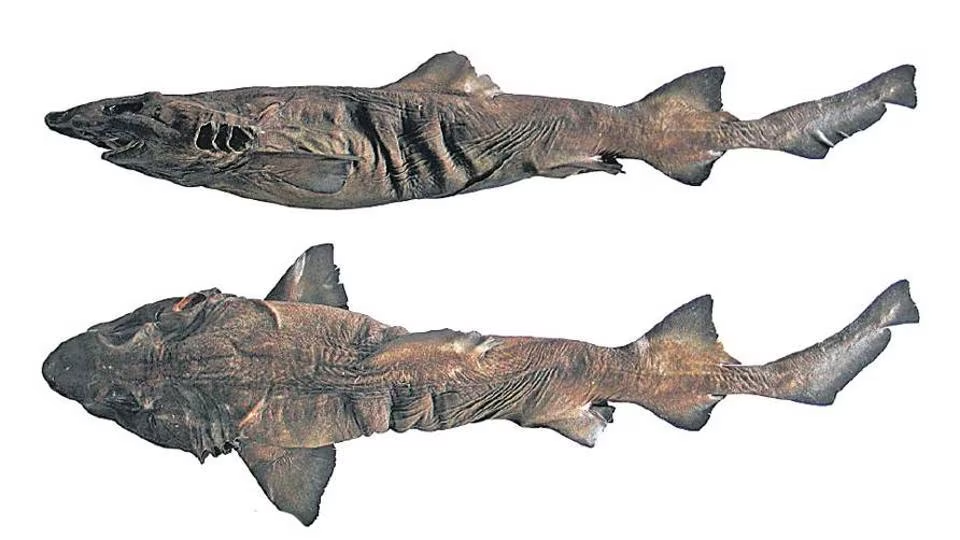New Deep-Water Shark Species in Kerala
Scientists from the Zoological Survey of India (ZSI) have discovered a new species of deep-water dogfish shark at the Sakthikulangara fishing harbor in Kerala. Named Squalus hima, this discovery, published in the journal Records of the ZSI, enhances our understanding of the marine biodiversity in the Arabian Sea. Spurdogs, belonging to the genus Squalus and the family Squalidae, are characterized by smooth spines on their dorsal fins and inhabit various marine environments globally.
Details of the Discovery
Led by Scientist Bineesh K. K from the Marine Biology Regional Centre of ZSI, the team conducted extensive morphological, meristic, and morphometric research to distinguish Squalus hima from closely related species like S. mitsukurii and S. lalannei. Key distinguishing factors include vertebral count, dental morphology, and fin shape. This discovery contributes significantly to our understanding of the diverse species inhabiting India’s southwest coast, highlighting its importance for environmental conservation amidst pressures from fisheries and industrial interests.
Zoological Survey of India (ZSI)
Establishment and Purpose: Founded on July 1, 1916, ZSI is dedicated to systematically surveying, exploring, and researching India’s fauna. Initially established to advance zoological studies, ZSI is headquartered in Kolkata.
Operations and Collections: ZSI operates 16 regional stations across India, housing over 5 million specimens in its repositories. It identifies, archives, and showcases a wide range of animal specimens, crucial for understanding and preserving India’s biodiversity.
Conservation and Assessments: ZSI conducts environmental impact assessments for developmental projects to ensure biodiversity conservation. It maintains and updates the ‘Red Data Book,’ documenting the conservation status of various species, pivotal for conservation efforts.
Economic and Environmental Implications
The discovery underscores the need to balance economic activities with environmental conservation. Enhanced knowledge of new species supports sustainable management of fisheries and marine biodiversity, particularly within the economically vital Indian Exclusive Economic Zone (EEZ).












